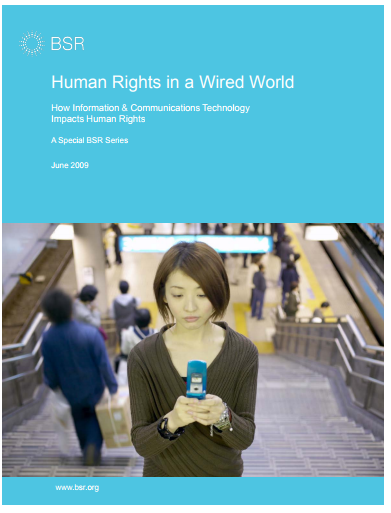Sixty years after the proclamation of the Universal Declaration of Human Rights (UDHR), the world finds itself in a very different place, where almost anyone, anywhere, has the potential to access an endless source of information and communicate directly with the rest of the world. Information and communications technology (ICT) has been one of the most powerful drivers of change in our global society and has greatly shaped how we protect and advance human rights today.
ICT provides opportunities to advance human rights (for instance, by raising public awareness of human rights violations) and generates new risks as well (by allowing people to track the location of and target a potential victim). In many cases, an attribute of technology may pose benefits and problems at the same time—for example, while the anonymity of the internet may enable individuals to express themselves more freely, the same anonymity may facilitate cyber hate crimes. The complex nature and rapid evolution of technology make understanding its human rights implications a challenge.
Technology can move faster than the law, and for this reason, ICT companies have a critical role to play in evolving ICT and its use in a way that protects and promotes human rights. The human rights implications of ICT for a company can be considered from three perspectives:
1. Companies creating ICT: How can companies design, develop, and promote the use of their ICT products in a manner that is aligned with human rights?
2. Companies using ICT: How can companies use ICT in a way that protects and advances human rights?
3. Companies responding to a society that uses ICT: How can companies operate in a society that is evolving its use of ICT while considering the human rights implications?
Each article in this “Human Rights in a Wired World” series presents a snapshot on ICT impacts on one article in the UDHR, highlighting examples of companies and organizations that have acted in this space. The series covers select rights in the UDHR that are particularly relevant for companies and their role in developing and/or using ICT. Freedom of expression, the right to education, freedom from torture, the right to privacy— these are just a few of the many human rights recognized internationally and impacted by today’s businesses and technologies.

